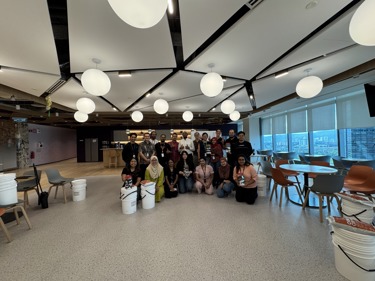Blog - Page 1

Access Vietnam new office: Setting new standards in sustainable workplace design
Read Article on Access Vietnam new office: Setting new standards in sustainable workplace design
What’s the difference between legal matter, case, practice and document management?
Read Article on What’s the difference between legal matter, case, practice and document management?
Creating a digital conveyancing process to align with customer expectations
Read Article on Creating a digital conveyancing process to align with customer expectations
Show of support: Uncovering current trends in volunteering in the UK
Read Article on Show of support: Uncovering current trends in volunteering in the UK
Why students love Access GCSEPod
Read Article on Why students love Access GCSEPod
Access Education and Eteach join forces to enhance recruitment strategies for Schools
Read Article on Access Education and Eteach join forces to enhance recruitment strategies for Schools
Police Box Science – The hidden science behind Doctor Who
Read Article on Police Box Science – The hidden science behind Doctor Who
Roy Kent Chemistry – The hidden science behind Ted Lasso
Read Article on Roy Kent Chemistry – The hidden science behind Ted Lasso
10 Ways Social Prescribing Can Improve Mental Health
Read Article on 10 Ways Social Prescribing Can Improve Mental Health
Engaging parents in schools and student learning
Read Article on Engaging parents in schools and student learning
Round Table Science – The hidden science behind Traitors
Read Article on Round Table Science – The hidden science behind Traitors
Cordyceps Calamity – The hidden science behind The Last of Us
Read Article on Cordyceps Calamity – The hidden science behind The Last of Us
Access Unites for our Planet - Celebrating Earth Day Across the Globe
Read Article on Access Unites for our Planet - Celebrating Earth Day Across the Globe
Steps towards becoming a paperless school - reduce waste and save money
Read Article on Steps towards becoming a paperless school - reduce waste and save money
The Access Group Joins the Dark Side for Earth Hour
Read Article on The Access Group Joins the Dark Side for Earth Hour
What are the 5 biggest challenges facing the legal profession in 2025?
Read Article on What are the 5 biggest challenges facing the legal profession in 2025?
Delayed discharge from hospital – The best way to reduce them
Read Article on Delayed discharge from hospital – The best way to reduce them
Patient Engagement Strategies
Read Article on Patient Engagement Strategies
Dynamic purchasing system vs framework – what is the difference?
Read Article on Dynamic purchasing system vs framework – what is the difference?
Best Population Health Management Solutions
Read Article on Best Population Health Management Solutions
Care Act Local Authority Responsibilities – What are they?
Read Article on Care Act Local Authority Responsibilities – What are they?
Social Determinants of Health and How Social Prescribing Can Help
Read Article on Social Determinants of Health and How Social Prescribing Can Help
The best community alarm in the UK 2023
Read Article on The best community alarm in the UK 2023
Challenges in providing telehealth to older adults
Read Article on Challenges in providing telehealth to older adults
How can telehealth reduce health costs?
Read Article on How can telehealth reduce health costs?
The Paperless Law Firm: A real option or a 40-year-old pipe dream?
Read Article on The Paperless Law Firm: A real option or a 40-year-old pipe dream?
Local government technology trends – Improve local authorities work
Read Article on Local government technology trends – Improve local authorities work
CQC Inspections of Local Authorities – What you need to know
Read Article on CQC Inspections of Local Authorities – What you need to know
Social Prescribing Day - What is it and how can it be supported?
Read Article on Social Prescribing Day - What is it and how can it be supported?

 AU & NZ
AU & NZ
 SG
SG
 MY
MY
 US
US
 IE
IE